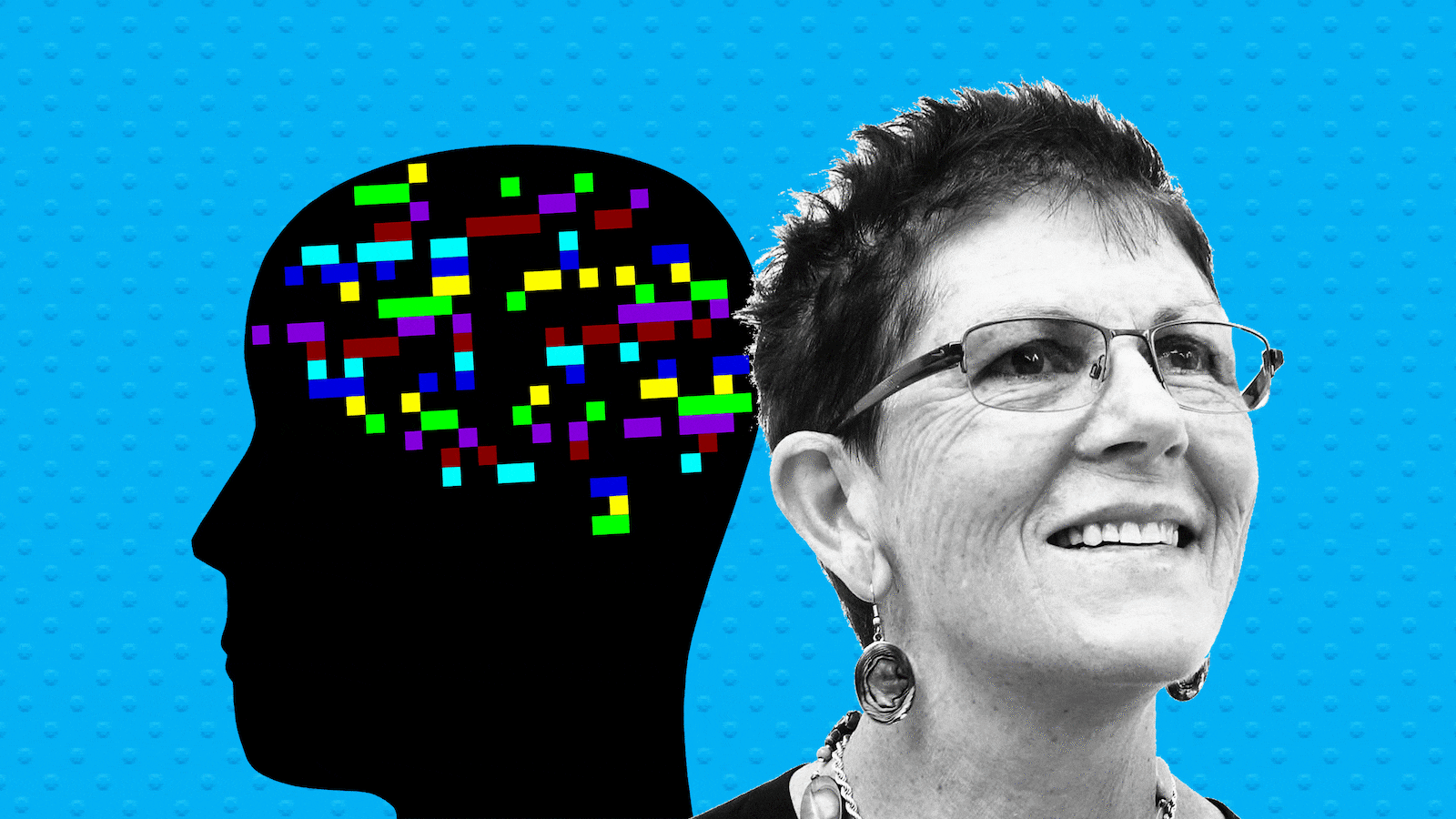Barbara Lipska was already a two-time cancer survivor when her hand disappeared in front of her face in 2015.
The neuroscientist and director of the Human Brain Collection Core at the National Institute of Mental Health specializes in studying schizophrenia. When she moved her right hand and it disappeared, she immediately predicted her eventual diagnosis.
“I thought right away: brain tumor,” she told The Daily Beast. “But I quickly expelled it. I didn’t have time for brain tumors.”
Lipska, whose book The Neuroscientist Who Lost Her Mind: My Tale of Madness and Recovery was published on April 3, had already faced her own mental health challenges in the wake of battling breast cancer in 2009, then melanoma in 2011. She sought psychotherapy at the recommendation of her daughter.
She’s not alone in needing help as a cancer patient. According to the American Cancer Society, feelings of depression, anxiety, and fear are very common in people with cancer, and up to one in 4 people with cancer have clinical depression.
The mental health issues Lipska started experiencing in 2015 were extreme. There was the vision issue, her disappearing hand, and the suddenly unrecognizable faces of colleagues. There was also her memory—forgetting where she lived while out on a run and an impaired awareness of having to urinate, leading her to pee her pants. And there was also her changing personality, breakdowns and overall failure to see that she was experiencing these things. Lipska, whose entire career revolved around these kinds of behaviors caused by mental health disorders, suddenly started experiencing them herself.
Lipska’s brain tumors were metastases, secondary malignant growths in the brain that were a result of her melanoma. Her largest tumor was the size of an almond. According to the American Brain Tumor Association, melanoma is a common cancer to metastasize to the brain, along with lung, breast, and colon.
One of Lipska’s doctors, Ayal Aizer, M.D., a radiation oncologist at the Dana-Farber Cancer Institute, told The Daily Beast that there are a number of elements to consider when patients are diagnosed with metastases, namely the location of their tumors, which eventually defines how they manifest. Lipska’s tumors inhabited her brain’s frontal cortex, which, she writes in her book, “determines who humans are.”
“Even if they’re small, there’s a psychological aspect of having cancer in the brain which is very difficult to digest and ultimately cope with, and in addition to that, some patients who have brain metastases actually have symptoms that can impair what we value most in life like vision, coordination or speech or walking and the ability to think clearly and digest information,” he said.
“It really can significantly impact the life.”

Aizer said that a patient’s mental healthcare is dictated by what they want or express in their unique needs. Sometimes, patients like to stick to strictly medical facts when dealing with oncologists; other times, they want to have an all-hands-on-deck approach, with psychologists, psychiatrists, even family therapists. The goal is to help patients process their mental and neurological issues, digest it, cope with it.
“Sometimes we can bring in speech and language and occupational therapists, and I think just having the opportunity to sit with a mental health professional in the office for an hour where we’re not talking about chemo or immunotherapy or radiation or surgery and it’s talking about what life is like, what challenges they’re facing and having someone to sort of listen, serve as a sounding board and come up with strategies to cope is really valuable,” Aizer said.
Lipska underwent many different treatments for the metastases, like immunotherapy, radiation, steroids and targeted therapy. And slowly, her clarity came back bit by bit, but she was entirely unaware of how she’d behaved, so much so that her family had to fill her in on her behaviors.
Today, Lipska is now in remission. It’s been 16 months after the initial findings of her tumors, but she’s aware there could be more cancer cells still in her body. There’s also the chance she’ll develop necrosis, an effect of radiation that destroys healthy brain tissue.
But mostly, Lipska is positive, thankful. She’s happy to have her memory and brain back and to have learned so much from her experience that she can use toward her own work.
Though she’s regained her neurological function, she largely associates what she went through with what mentally ill people go through every day.
“In the course of losing and regaining my sanity, I’ve come to identify with other people who have known mental illnesses firsthand,” Lipska said in her book, explaining that the symptoms she exhibited fall in line with diagnoses for dementia, schizophrenia, and bipolar disorder. “Despite conducting research on mental illness for over thirty years, I believe it is my own suffering that truly taught me how the brain works—and how profoundly frightening it is when our minds fail.”
Lipska said her compassion for those with mental illness is one of the many things this experience left her with.
“The brain is an incredibly complex mechanism and we have no idea what happens in people with mental illness, so there’s more empathy, it gives rise to more tolerance and more passion toward research in this field and more passion to find a cure, which I spend my life working on.”





